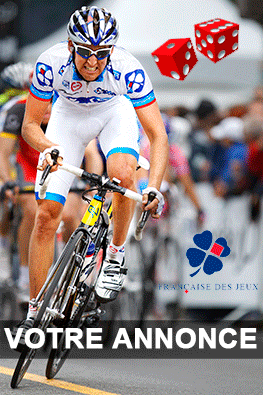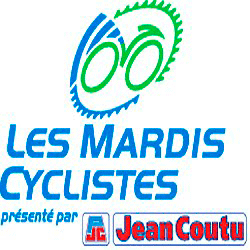 |
Arnaud Papillon (Garneau - Club Chaussures) © Pasquale Stalteri / All Rights Reserved |
But why are we so surprised and disappointed?
For those who still believe in Santa Claus or the tooth Fairy, it's time for a wake up call. The vast majority of elite pro cyclists use performance enhancing substances and with the sport growing and more Quebec
In the early 80's any competitive cyclist in Quebec
Since then, athletes have become aware of the secrets once shared among the elite few and now the majority are using performance enhancing substances in order to simply maintain a level playing field. So are they really cheating?
I believe that if no one used drugs that all the same athletes would remain the elite but how can we successfully ensure that all athletes are clean?
Post race drug tests alone are not the answer since, as sophisticated and expensive as they may be, are often only capable of detecting certain "masking agents" rather than the performance enhancing drugs themselves. Allowing athletes using newer undetectable masking substances to pass as clean.
Athletes are therefore left to fend for themselves in order to ensure that they are not outperformed due to inadequate training, inferior equipment and or insufficient dosages. This is the reality of professional cycling and until we grasp this reality and work towards finding practical solutions, it will continue to expand and evolve.
Most elite athletes who have already invested so much time and money into their careers are simply not going to stop doping in fear of being left behind and losing all they have invested. And with the risk of getting caught being marginal at best, the choice becomes obvious.
Subsequently, suspending the odd rider who does get caught does very little towards cleaning the overall sport nor protecting the athletes but rather strengthens the resolve of those wanting to continue racing undetected and those invested in providing these athletes with the right combination of agents aimed at beating the drug tests.
The bottom line is that until we find a completely foolproof method of drug detection, the vast majority of professional athletes really have no choice other than to dope, use masking drugs and or whatever else their fellow competitors are using in order to stay competitive and remain part of the elite.
To single out certain individuals from this pool and label them as cheaters is a naïve attempt to fix a complex problem. It is almost as naïve as the belief that Lance Armstrong was completely clean. Or maybe you still believe in Santa Claus?
To single out certain individuals from this pool and label them as cheaters is a naïve attempt to fix a complex problem. It is almost as naïve as the belief that Lance Armstrong was completely clean. Or maybe you still believe in Santa Claus?
Pasquale Stalteri
____________________________________________________________
L'ASSOCIATION CYCLISTE CANADIENNE ANNULE LES RÉSULTATS D'ARNAUD PAPILLON AU CHAMPIONNAT CANADIEN DE CYCLISME SUR ROUTE
____________________________________________________________
 |
| Arnaud Papillon 2010 U23 road champion © Pasquale Stalteri |
Les conclusions du CCES entraînent une suspension de deux ans de la compétition pour ce cycliste
L'Association cycliste canadienne (ACC) a appris avec surprise et une grande tristesse les résultats du contrôle antidopage réalisé sur un cycliste québécois au Championnat canadien de cyclisme sur route de 2011, par le Centre canadien pour l'éthique dans le sport (CCES).
John Tolkamp, le président de l'ACC a fortement réagi à cette nouvelle : «Cet événement est loin d'être anodin. Il fait de nombreuses victimes. En effet, tous nos athlètes et la communauté du cyclisme dans son ensemble s'en ressentent, car c'est une attaque à notre identité. Nous sommes plus fiers d'une quatrième place remportée par l'effort et la persévérance, que d'une médaille d'or souillée. Nous continuerons donc à nous montrer vigilants et nous nous attendons à ce que nos athlètes respectent les normes éthiques les plus élevées qui soit.»
L'ACC s'oppose fermement et de manière inflexible à toutes les formes de dopage, et elle a pris des mesures exceptionnelles pour surveiller, tester et éduquer les athlètes qui pratiquent le cyclisme. Depuis le mois d'avril dernier, 392 tests ont été effectués sur les athlètes du réservoir national, et notamment des analyses d'urine et sanguines, ce qui fait du cyclisme un des sports les plus testés au Canada. Parmi ces tests, 229 ont été des tests inopinés, sans préavis, effectués hors compétition. La dernière fois qu'un test de dopage a entraîné une suspension en cyclisme au Canada, c'était en mai 2005, soit il y a plus de six ans. Le cyclisme canadien a pris très au sérieux ses responsabilités en matière de dopage, et il a mis en place des initiatives antidopage adéquates pour combattre ce fléau.
Tous les membres des équipes nationales de cyclisme, et tous les participants aux Championnats canadiens de cyclisme, font partie du programme «Race Clean: Own Your Victory / Roulez gagnant au naturel» qui est le porte-drapeau de la lutte contre le dopage au Canada
Commentant davantage cet événement au nom de l'ACC, le chef de la direction et secrétaire général de l'ACC, Greg Mathieu a déclaré : «Il est malheureux qu'un athlète pratiquant notre sport ait choisi d'emprunter un raccourci pour obtenir de bonnes performances. Le fait que le régime très strict de tests de notre association nationale, avec la collaboration du CCES, ait identifié le problème, devrait servir de rappel à tous ceux et celles qui envisageraient de tricher car ils savent qu'ils seront attrapés et sévèrement sanctionnés.»
Et Mathieu poursuit : «Nous allons continuer à intensifier nos efforts d'éducation à tous les niveaux du cyclisme, afin que tous nos athlètes courent de manière juste et équitable. En plus de nos initiatives d'éducation de nos athlètes, nous allons continuer à collaborer avec l'UCI, le CCES et d'autres partenaires afin d'améliorer nos procédures et nos programmes visant à garantir que le cyclisme soit un sport juste et équitable.»
L'Association cycliste canadienne demande à Arnaud Papillon de coopérer complètement avec le CCES dans son enquête visant à déterminer la source de la substance interdite, et l'éventuelle participation d'autres personnes à ce problème de dopage.
Conformément à la politique canadienne antidopage, le CCES a imposé à M. Papillon une suspension de deux ans de toute compétition. Il est également suspendu à vie de toute subvention de Sport Canada
Suite à ces conclusions du CCES, l'Association cycliste canadienne (ACC) a modifié les résultats des courses du Championnat canadien de cyclisme sur route de 2011 auxquelles M. Papillon a participé, et modifié le palmarès dans la catégorie des moins de 23 ans, une course à laquelle M. Papillon avait terminé à la deuxième place.
MISE À JOUR DU PODIUM – Course sur route masculine des moins de 23 ans au Championnat canadien de cyclisme sur route de 2011
1. HOULE, Hugo [TEAM SPIDERTECH POWERED BY C10]
2. RIGGS, Jamie [TEAM ONTARIO
3. SMITHEMAN, Spencer [HAGENS
CONTACT MÉDIA
Guy Napert-Frenette
Gestionnaire des communications
Association cycliste canadienne
(403) 614-4275
CANADIAN CYCLING ASSOCIATION NULLIFIES ARNAUD PAPILLON’S RESULTS AT CANADIAN ROAD
 |
| Arnaud Papillon 2010 U23 Canadian road champion © Pasquale Stalteri |
CCES Findings Lead to Two-Year Suspension from Competitive Cycling
The Canadian Cycling Association (CCA) is shocked and saddened to learn of the adverse analytical finding of Arnaud Papillon, a cyclist from Longueuil, Québec, as a result of an anti-doping test administered by the Canadian Centre for Ethics in Sport (CCES) at the 2011 Canadian Road Championships.
John Tolkamp, President of the CCA reacted strongly to the news; "This is not a victimless event; from our athletes to the broad cycling community the repercussions are felt and it tears at our identity. We are more proud of a single 4th place earned by sweat and perseverance than any tainted gold medal and will continue to be vigilant and expect our athletes to uphold themselves to the highest standards."
The CCA is firmly and adamantly opposed to all forms of doping and has taken exceptional measures to monitor, test and educate athletes in the sport. Since April of last year, 392 tests have been conducted on the national pool of cyclists including blood and urine testing making it one of the most tested sports in Canada Canada
Each national team athlete and Canadian Championship participant competes under the ‘Race Clean: Own Your Victory / Roulez gagnant au naturel’ banner on behalf of Canada
Speaking further on behalf of the CCA, Chief Executive Officer and Secretary General Greg Mathieu said: “It is unfortunate to learn that an athlete in our sport has chosen to take a short cut to performance. The fact that the rigorous testing regime of the national body with the collaboration of the CCES identified the problem should serve as a reminder to any that would cheat that they will be caught and sanctioned harshly”.
Added Mathieu: “We will continue to enhance our efforts to educate around doping in our sport so that all athletes compete on a fair and equal basis. Besides educating our athletes we will continue to work with the UCI, CCES and other partners to improve processes and programs to ensure fair sport.”
The Canadian Cycling Association is calling upon Arnaud Papillon to cooperate fully with the CCES in its investigation on the source of the banned substance and the possible involvement of others in this doping matter.
In accordance with the Canadian Anti-doping Policy the CCES has imposed a two-year ban from competition on Arnaud Papillon. He also receives a lifetime ban from receiving Sport Canada funding.
As a result of this finding, the Canadian Cycling Association (CCA) has revised the results of the 2011 Canadian Cycling Championships races in which he participated, as well as updated the podium for the U23 category, a race in which Papillon finished second.
UPDATED PODIUM – U– CANADIAN ROAD CHAMPIONSHIPS
1. HOULE, Hugo [TEAM SPIDERTECH POWERED BY C10]
2. RIGGS, Jamie [TEAM ONTARIO
3. SMITHEMAN, Spencer [HAGENS
MEDIA CONTACTS
Guy Napert-Frenette
Manager, Communications
Canadian Cycling Association
(403) 614-4275
____________________________________________________________
 |
| Arnaud Papillon (Garneau - Club Chaussures) © Pasquale Stalteri |
For immediate release
Arnaud Papillon tested positive for illegal substances
LOUIS GARNEAU DISAPPOINTED
Saint-Augustin-de-Desmaures, October 19, 2011 - We were extremely disappointed to learn that cyclist Arnaud Papillon tested positive for illegal substances at the Canadian Championships, held June 23 – 26, 2011. He was a member of Team Garneau, Team Quebec and Team Canada.
We condemn this gesture that goes against the very nature of sportsmanship and is purely and simply cheating. Arnaud Papillon made a bad judgment call, due no doubt to his youth and he acted on his own.
We have decided to go ahead with three preventive actions starting next season:
1) Increase our team members’ awareness against doping and help educate them accordingly
2) Identify our team jersey with the Fédération québécoise des sports cyclistes slogan, “Roulez gagnant au naturel”, as well as its national equivalent, “Race clean, own your victory”, implemented by the Canadian Cycling Association
3) Our team members will be submitted to 1 – 2 screening tests per season with assistance from the CCES (Canadian Center for Ethics in Sports)
Team Garneau has been competing for 11 years and will continue to do so next year. Its mission is to help young cyclists become great athletes and help them make their dream come true!
“In the past, the team helped Lyne Bessette, Hugo Houle, David Veilleux, as well as my two sons, William and Édouard, to achieve great performances. All these people succeeded in winning without drugs!” says Louis Garneau.
Punish, without destroying
“We must manage this situation like a good father would. We must punish, yes, and the CCES will ban Arnaud for 2 years. He will also unfortunately get a bad reputation in the process.
On the other hand, we must not destroy the young people who have cheated, but instead bring them back and help them be better persons in life,” Louis Garneau declared.
“Incidentally, I want to congratulate the CCES (Canadian Center for Ethics in Sports) for its excellent work.
We all hope that this reprehensible behavior on Arnaud Papillon’s part serves as an example and a lesson to everyone in order to avoid similar situations in the future. I believe in “clean” cycling,” Mr. Garneau also stated.
Team Garneau consists of 29 cyclists in 4 Canadian provinces, i.e. Quebec, Maritimes, Ontario and British Columbia.
_______________________________________________________________
release by the CCES
October 19, 2011 (Ottawa, Ontario) – The Canadian Centre for Ethics in Sport announced today that cyclist, Arnaud Papillon, received a two-year sanction for the use of erythropoietin (EPO) during the Canadian Road Championships.
Papillon, who was tested multiple times prior to, during and after the Canadian Championships, had two separate urine samples (one in-competition sample and one out-of competition sample) return adverse analytical findings for the presence of EPO, a prohibited substance on the World Anti-Doping Agency 2011Prohibited List.
EPO is a peptide hormone that is produced naturally by the human body. It is released from the kidneys and acts on the bone marrow to stimulate red blood cell production. An increase in red blood cells improves the amount of oxygen that the blood can carry to the body’s muscles. It may also increase the body’s capacity to buffer lactic acid.
Papillon waived his right to a hearing and accepted the proposed sanction of two years ineligibility from sport commencing August 12, 2011 . The sanction prevents Papillon from participating in any capacity in any competition or in any sport-related activity, including training with team mates, authorized or organized by an organization that has adopted the Canadian Anti-Doping Program.
“It is always disappointing when we find that an athlete has attempted to cheat,” said Paul Melia, President and CEO of the Canadian Centre for Ethics in Sport. “However, it is even more disconcerting when we find out that the substance being used is as dangerous and sophisticated as EPO.”
The Canadian Centre for Ethics in Sport is an independent, national, not-for profit organization. We recognize that true sport can make a great difference for individuals, communities and our country. We are committed to working collaboratively to activate a values-based and principle-driven sport system; protecting the integrity of sport from the negative forces of doping and other unethical threats; and advocating for sport that is fair, safe and open to everyone.







































0 comments:
Post a Comment
Note: Only a member of this blog may post a comment.